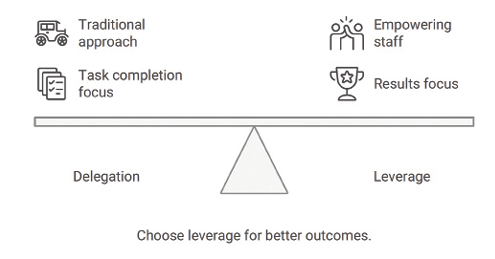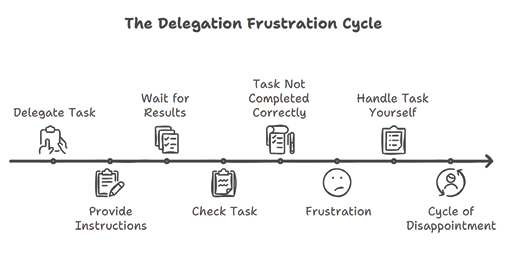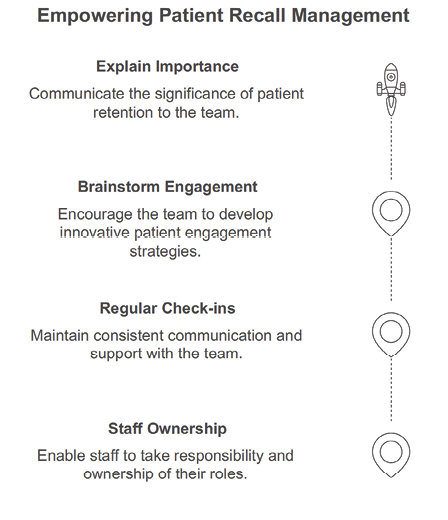
There’s a huge difference between delegation and what I call real leverage, and if you don’t get this right, it’ll cost you. Traditional delegation? It’s a trap—flawed, weak, and it leaves you cleaning up messes you never should’ve had to deal with in the first place. Let’s dive into why delegation is failing you and how leverage—when done right—turns your team into a results-producing machine. You’re not just handing out tasks; you’re building a culture laser-focused on outcomes that will grow your practice into a thriving, profit-generating empire.

The flaws of delegation
When you delegate tasks to your dental staff, you’re setting yourself up for frustration. You give them instructions—what to do, when to do it—and then wait. You check in once, on the due date. And what happens when it’s not done correctly or on time? You get frustrated—at them, but more importantly, at yourself. Why? Because now you’ve got to step in and do it yourself. Delegation, at its core, is a flawed system. It’s almost like gambling with your practice. You’re always going to be disappointed.

The power of leverage
In contrast, leverage offers an entirely different approach. Instead of merely issuing orders and hoping for the best, leverage involves inspiring your team. When I leverage, I ensure my team knows exactly what outcome I want and, more importantly, why I want it. Then I empower them to come up with multiple ways to achieve that outcome. And here’s the key—I don’t just vanish until the deadline. I check in along the way, making sure they have the support and resources they need to deliver. That way, when the work is completed, there’s no surprise. It’s done right, and everyone is aligned.
Aligning interests for success
Leverage is fundamentally about aligning your team’s interests with your own. You make them purpose-driven, not task-driven. And that’s where the real change happens. You stop micromanaging activities and instead create a culture obsessed with outcomes. That’s how you scale a thriving dental practice.
Example of effective leverage
Consider the task of managing patient recall reminders. If you delegate this task by simply instructing your front desk staff to “call the overdue patients,” you are likely setting yourself up for disappointment. The result may be that only half the patients are contacted, or worse, that patients respond poorly to the communication. This leads to frustration and ultimately requires you to step in and manage the situation yourself.
Now, if you leverage, you do it differently. You explain the importance of patient retention to the staff and how those recall appointments affect the bottom line of the practice. You empower them to suggest new ways to engage patients—whether that’s through phone calls, texts, or email reminders. You check in regularly to see how their efforts are going and offer support. The outcome? You create a process that brings in more patients, without you having to step in to “fix” things.

Conclusion
I didn’t build my dental business by doing everything myself, and I sure didn’t do it by handing out tasks and hoping for the best. I built it by leveraging people and resources effectively. You can do the same in your practice. Leverage is how you create exponential growth and free yourself from the daily grind.
Delegation? That’s small-time thinking. Leverage? That’s how you build a dental empire.
About the Author

Dr. Galia Anderson graduated from the University of Toronto’s Faculty of Dentistry and built a successful private practice in Vancouver, British Columbia, where she served patients for 15 years. Today, as the founder of Dental Business Experts, Dr. Anderson is committed to empowering dentists to achieve substantial growth in their practices. Schedule a no-obligation strategy call with Dr. Anderson to get started: www.yourdbexperts.com/call











